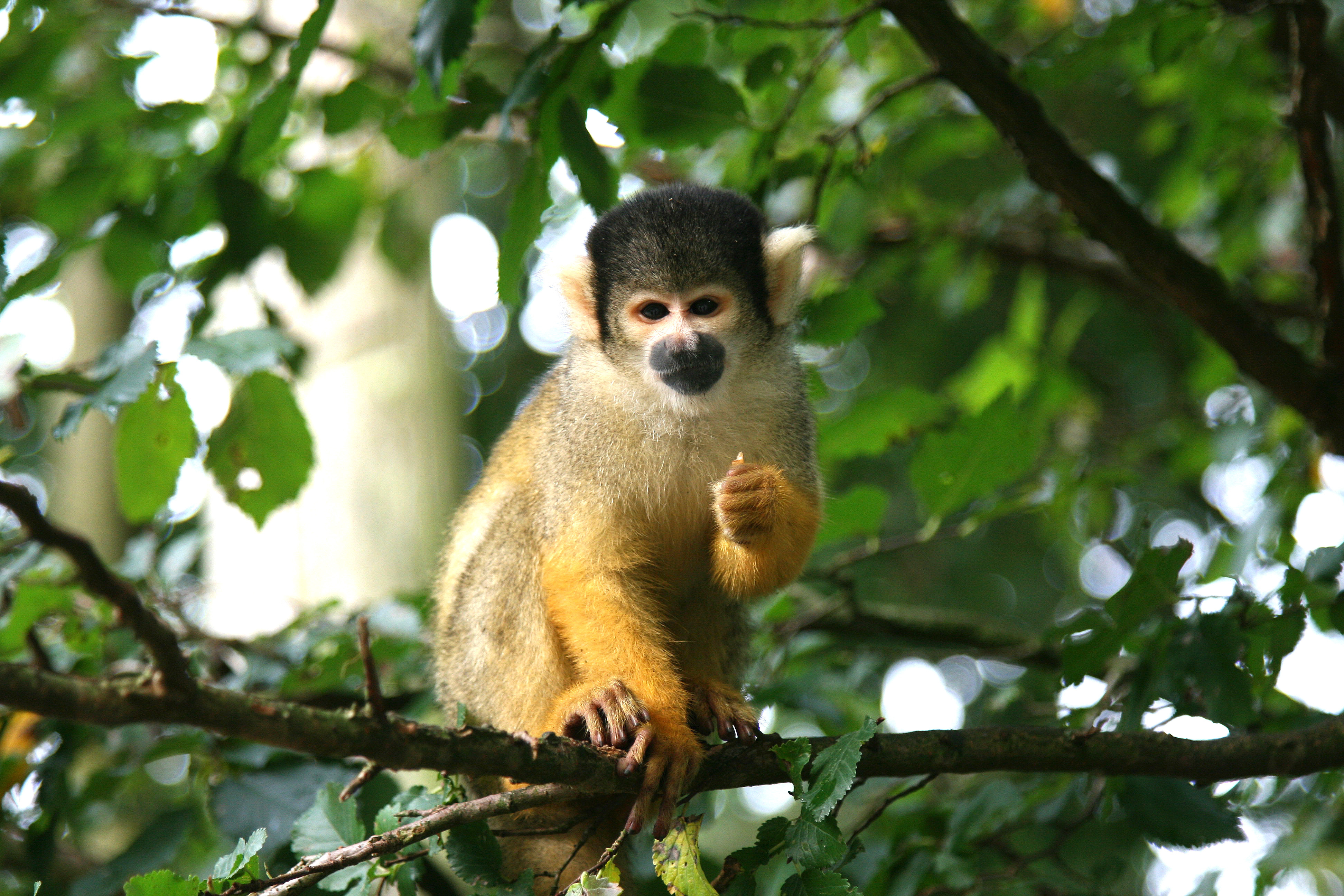Moral Debate: Procedure Risks Making Monkeys More Humanlike

The insertion of human stem cells into monkey brains runs a "real risk" of altering the animals' abilities in ways that might make them more like us, scientists said today.
A panel of 22 experts — including primatologists, stem cell researchers, lawyers and philosophers — debated the possible consequences of the technique for more than a year.
While the group agrees it is "unlikely that grafting human stem cells into the brains of non-human primates would alter the animals' abilities in morally relevant ways," the members "also felt strongly that the risk of doing so is real and too ethically important to ignore."
In the case of Alzheimer's research, for example, grafting human stem cells into a monkey brain would be designed to reinstate lost memory function, but "we cannot be certain that this will be the only functional result," the report concludes.
There was "considerable controversy" within the group, which disagreed on whether such experiements, some already underway, should proceed.
Uncharted territory
The conclusions, reported in the July 15 issue of the journal Science, reveal that scientists don't know how their monkeying around might alter the intelligence and emotions of animals.
The scientists admit they don't even know what really separates humans from our closest relatives, morally speaking, or how to measure any cognitive changes they might induce in an ape, monkey or other non-human primate.
Get the world’s most fascinating discoveries delivered straight to your inbox.
"Many of us expected that, once we'd pooled our expertise, we'd be able to say why human cells would not produce significant changes in non-human brains," said the report's lead author Mark Greene, formerly of Johns Hopkins University and now a professor at the University of Delaware. "But the cell biologists and neurologists couldn't specify limits on what implanted human cells might do, and the primatologists explained that gaps in our knowledge of normal non-human primate abilities make it difficult to detect changes.
"And there's no philosophical consensus on the moral significance of changes in abilities if we could detect them," Greene said.
The panel's report cites Kant, Mills and the Bible: "Humans are set apart by God as morally speical and are given stewardship over other forms of life" (Genesis I: 26-28).
Studies already underway
Human stem cells are unique cells that can transform into all the parts needed to create a living being. There are different types of stem cells. Brain stem cells in a human fetus, for example, morph into the neurons and all other cells needed to make a mind.
In 2001, researchers first inserted human brain stem cells into fetal monkeys. A controversy ensued over the morality of the procedure, and that flap eventually led to the formation of the 22-member panel.
Other experiments using the technique are underway. The work is largely pointed toward finding cures for Parkinson's disease, Lou Gehrig's disease, and other human afflictions.
The panel concluded that implanting human stem cells into monkey brains "could unintentionally shift the moral ground between humans and other primates."
Similar research has been done with other animals. In one project, scientists plan to inject a mouse with human brain cells. But bioethicists are not as concerned that a mouse could get morals.
"The possibility that human cells might create human-like abilities is much larger in nonhuman primates than in mice," said panel member Hank Greely, a law professor at Stanford University and chair of the Stanford Center for Biomedical Ethics steering committee.
Fundamental questions
"Our group struggled with many fundamental questions," said Ruth Faden, director of the Phoebe R. Berman Bioethics Institute at Johns Hopkins University. "Are there cognitive or emotional capacities that are unique to humans in ways that make us worthy of higher moral status? What sets one primate, including us, apart from another primate, cognitively speaking?"
The report states that the understanding of emotions and smarts of non-human primates is "patchy" and that "data are tricky to gather and difficult to interpret."
The panel members "agreed to disagree" about whether primates should be used for any invasive biomedical procedures, Faden said.
Researchers do not currently insert brain stem cells into human brains. Some in the group questioned whether inserting human cells into monkeys would provide relevant scientific results.
The panel recognized that the possibility of making monkeys more humanlike is an issue that goes well beyond science.
"There are biblical injunctions and secular reflection over the course of centuries, but nothing is certain or universally accepted, either scientifically or morally," Faden said. "Debate is complicated by uncertainty and uncharted territory in all of our fields of expertise. It quickly became clear how little is known."
Part of the group's concern involves the animals themselves.
"A fundamental issue was whether such experiments might unintentionally alter the animals' normal cognitive capacity in ways that could cause considerable suffering," Faden said.
Another issue is whether the procedure is "unnatural."
The group concluded that many procedures in medicine are unnatural but are not necessarily considered unethical. Pig cells have been studied for use in people with Parkinson's disease without moral objection, for example. So they set that argument aside.
Proceed with caution
The panelists concluded that morally significant changes are least likely if the research is done on adult primates as opposed to those whose brains are still developing. Further, abhorent alterations would be less likely by using primates more distantly related to humans, such as macaque monkeys, rathern than closer relatives like apes and chimpanzees.
The group recommends that ethical groups should oversee such work based on six factors:
- The number of human cells used compared with the number of cells in the animal's brain
- The developmental stage of the animal receiving the cells (fetus or adult)
- The species
- The animal's brain size
- The site where the stem cells are placed
- Whether the animal's brain was injured or diseased
"And, to fill in the gaps in our knowledge, proposed studies should measure and monitor behavioral, emotional and cognitive changes," Faden said. "We need to know whether the human cells have an effect on cognition, but right now, the experts aren't even quite sure what 'normal' is for some of these primates."
Robert is an independent health and science journalist and writer based in Phoenix, Arizona. He is a former editor-in-chief of Live Science with over 20 years of experience as a reporter and editor. He has worked on websites such as Space.com and Tom's Guide, and is a contributor on Medium, covering how we age and how to optimize the mind and body through time. He has a journalism degree from Humboldt State University in California.
 Live Science Plus
Live Science Plus






